Discover The Thomistic Institute
The Thomistic Institute

The Thomistic Institute
Author: The Thomistic Institute
Subscribed: 1,154Played: 150,921Subscribe
Share
© All rights reserved 183125
Description
The Thomistic Institute exists to promote Catholic truth in our contemporary world by strengthening the intellectual formation of Christians at universities, in the Church, and in the wider public square. The thought of St. Thomas Aquinas, the Universal Doctor of the Church, is our touchstone.
The Thomistic Institute Podcast features the lectures and talks from our conferences, campus chapters events, intellectual retreats, livestream events, and much more.
Founded in 2009, the Thomistic Institute is part of the Pontifical Faculty of the Immaculate Conception at the Dominican House of Studies in Washington, DC.
The Thomistic Institute Podcast features the lectures and talks from our conferences, campus chapters events, intellectual retreats, livestream events, and much more.
Founded in 2009, the Thomistic Institute is part of the Pontifical Faculty of the Immaculate Conception at the Dominican House of Studies in Washington, DC.
1779 Episodes
Reverse
Fr. Philip-Neri Reese examines Thomas Aquinas’s theory of intellectual memory, tracing how Aquinas navigates conflicting authorities and ultimately defends the preservation of intelligible species in the possible intellect.This lecture was given on June 17th, 2025, at Schloss St. Emmeram.For more information on upcoming events, visit us at thomisticinstitute.org/upcoming-events.About the Speakers: Fr. Philip-Neri Reese, O.P. is a Dominican Friar of the Province of St. Joseph and a professor of philosophy at the Pontifical University of St. Thomas (the Angelicum), where he also serves as the assistant director of the Angelicum Thomistic Institute. Though his scholarly research mainly focuses on metaphysics (especially the scholastic metaphysics of St. Thomas and his later interpreters), he has also published on ethics, economics, Christology, and philosophical anthropology.Keywords: Aristotelian Anthropology, Avicennian Epistemology, Habitual Knowledge, Imago Dei, Intellectual Memory, Intelligible Species, Memory, Possible Intellect, Verbal Dispute, Voluntary Cognition
Fr. Reginald Lynch’s lecture explores Augustine’s account of the Trinitarian image and its reception by Aquinas, illuminating how the development of grace, human anthropology, and sacramental life shape the Christian journey toward likeness with God.This lecture was given on June 17th, 2025, at Schloss St. Emmeram.Will you hand on the Faith to those who need it the most? Give by October 31st to film the next season of Aquinas 101! https://aquinas101.thomisticinstitute.org/oct25podcastFor more information on upcoming events, visit us at thomisticinstitute.org/upcoming-events.About the Speakers: Fr. Reginald Lynch is a Dominican priest of the Province of St. Joseph and a faculty member at the Dominican House of Studies in Washington, DC (USA). His research focuses on a range of issues in the History of Christianity area, especially medieval and early modern theology. His most recent work has focused on Aquinas’ reception history in the early-modern West. He has recently completed the book, Aquinas’s Summa Theologiae and Eucharistic Sacrifice in the Early Modern Period (Oxford University Press, 2023), which focuses on Dominican and Jesuit receptions of Aquinas in the sixteenth and early seventeenth centuries. He is also the author of The Cleansing of the Heart: The Sacraments as Instrumental Causes in the Thomistic Tradition (Catholic University of America Press, 2017).Keywords: Aristotelian Categories, De Trinitate, Divine Likeness, Essence And Powers, Habitual Grace, Human Anthropology, Liturgical Virtue, Sacramental Character, Sanctification, Threefold Image
Fr. Dominic Legge’s lecture traces the theological development of the concept of the Word through Augustine, Aristotle, and Aquinas, illuminating the evolution of Trinitarian analogy and the nature of human understanding in medieval philosophy.This lecture was given on June 16th, 2025, at Schloss St. Emmeram.Will you hand on the Faith to those who need it the most? Give by October 31st to film the next season of Aquinas 101! https://aquinas101.thomisticinstitute.org/oct25podcastFor more information on upcoming events, visit us at thomisticinstitute.org/upcoming-events.About the Speakers: Fr. Dominic Legge is the President of the Pontifical Faculty of the Immaculate Conception and Associate Professor in Systematic Theology at the Pontifical Faculty of the Immaculate Conception in Washington, D.C. He is an Ordinary Member of the Pontifical Academy of St. Thomas Aquinas, and holds a J.D. from Yale Law School, a Ph.L. from the School of Philosophy of the Catholic University of America, and a doctorate in Sacred Theology from the University of Fribourg in Switzerland. He entered the Order of Preachers in 2001, after having practiced constitutional law for several years as a trial attorney for the U.S. Department of Justice. He has also taught at The Catholic University of America Law School and at Providence College. He is the author of The Trinitarian Christology of St. Thomas Aquinas (Oxford University Press, 2017).Keywords: Albert The Great, Aristotelian Abstraction, Bonaventure, Illumination, Intellectual Procession, Inner Word, Marius Victorinus, Medieval Trinitarian Debates, Philosophical Cognition, Plotinus
Dr. Albert von Thurn und Taxis explores the 13th-century reception of Augustine’s account of memory, intellect, and will, analyzing how medieval philosophers navigated the tension between Augustinian and Aristotelian models of the rational soul.This lecture was given on June 15th, 2025, at Schloss St. Emmeram.Will you hand on the Faith to those who need it the most? Give by October 31st to film the next season of Aquinas 101! https://aquinas101.thomisticinstitute.org/oct25podcastFor more information on upcoming events, visit us at thomisticinstitute.org/upcoming-events.About the Speakers: Dr. Albert von Thurn und Taxis is the twelfth Prince of Thurn und Taxis and the current head of the Princely House. Born in Regensburg in 1983, his academic career reflects a diverse range of studies across economics, theology, and philosophy.Prince Albert completed his early education in Regensburg and at the German School in Rome. He went on to study economics and theology at the University of Edinburgh, graduating with a Master of Arts in 2008. He further honed his financial expertise by training as a chartered financial analyst in Zurich from 2008 to 2010. He later returned to Rome to pursue philosophy, earning a doctorate in 2022 from the Pontificia Universitas Studiorum a Sancto Thoma Aquinate in Urbe (Pontifical University of St. Thomas Aquinas). His research interests touch on morality and agency, evident in his publication, "John Stuart Mill and the Criterion of Morality: The Good, the Self and the Other" (2011), and his Licentiate Thesis, "Triumph of the Will? Rationality and Freedom in Aquinas' Theory of Agency" (2014).He is also a member of several other noble and religious orders, including the Royal Order of Saint George for the Defence of the Immaculate Conception (2005) and an honorary knight of the Sovereign Order of Malta (2010).Keywords: Albert The Great, Aristotelian Anthropology, Augustinian Triad, Faculty Psychology, Human Rationality, Imago Dei, Medieval Controversies, Memory Intellect And Will, Philosophical Anthropology, Trinitarian Psychology
Prof. Patrick Callahan explores the living tradition of Catholic culture, using Tolkien’s life and imagination to demonstrate how the Mass, community, and cultivation of virtue form a unified Christian identity resilient amidst modern challenges.This lecture was given on January 18th, 2024, at University of Washington.Will you hand on the Faith to those who need it the most? Give by October 31st to film the next season of Aquinas 101! https://aquinas101.thomisticinstitute.org/oct25podcastFor more information on upcoming events, visit us at thomisticinstitute.org/upcoming-events.About the Speakers:Prof. Patrick Callahan is director of the Newman Institute for Catholic Thought & Culture as well as Assistant Professor of English and Humanities at St. Gregory the Great Seminary. There he directs and teaches in a Great Books Catholic program for students at the University of Nebraska-Lincoln and other regional colleges. He did his undergraduate work at the University of Dallas and his graduate work at Fordham University in Classics. He lives in Lincoln, NE with his wife and 5 children.Keywords: Catholic Culture, Community Tradition, Cultural Standardization, Evelyn Waugh, Incarnational Liturgy, Intellectual Virtue, Justice And Temperance, Letters Of Tolkien, Mustard Seed Metaphor, Sacramental Imagination
Prof. Giuseppe Pezzini explores the biographical and spiritual connections between Newman and Tolkien, revealing how their shared organic vision of historical development and renewal challenges modern tensions between nostalgia, progress, and Christian identity.This lecture was given on March 27th, 2025, at University of Edinburgh.Will you hand on the Faith to those who need it the most? Give by October 31st to film the next season of Aquinas 101! https://aquinas101.thomisticinstitute.org/oct25podcastFor more information on upcoming events, visit us at thomisticinstitute.org/upcoming-events.About the Speakers: Giuseppe Pezzini is Associate Professor in Latin at Corpus Christi College, Oxford, which he joined in 2021, after five beautiful years of teaching in St Andrews (2016–2021), and research fellowships at Magdalen College Oxford (2013–2015) and the Institute for Advanced Study in Princeton (2016). He worked as an assistant editor for the Oxford Dictionary of Medieval Latin, and has published especially on Latin language and literature, philosophy of language, and the theory of fiction, ancient and modern. He is the Tolkien Editor for the Journal of Inklings Studies, one the founders of the Oxford Tolkien Network, and the author of many publications on Tolkien, including a forthcoming monograph on Tolkien’s literary theory (Cambridge University Press). He is also a member of the Young Academy of Europe, an Associate Member at the Institute of Theology, Imagination and the Arts at the University of St Andrews, and has published and curated exhibitions on John Henry Newman (2011, 2014) and Oscar Wilde (2015).Keywords: Birmingham Oratory, Decline And Renewal, Historical Change, J.R.R. Tolkien, John Henry Newman, Organic Vision Of History, Sacred Memory, Seed And Tree Symbolism, Spiritual Influence, Vatican II
Fr. Innocent Smith’s lecture illuminates how Gregorian Chant, rooted in Psalms, hymns, and spiritual canticles, enriches Catholic liturgy by shaping Christian spirituality and expressing the deep joy of the Gospel through sung prayer.This lecture was given on April 10th, 2025, at Clemson University.For more information on upcoming events, visit us at thomisticinstitute.org/upcoming-events.About the Speakers: Innocent Smith, O.P., is Assistant Professor of Theology at the University of Notre Dame. After undergraduate studies in music and philosophy at Notre Dame, he entered the Order of Preachers in 2008 and was ordained priest in 2015. Fr. Innocent served in parish ministry for several years before completing a doctorate in liturgical studies at the University of Regensburg in 2021. After teaching for several years in Baltimore and Washington, DC, he joined the Department of Theology in 2025. His research focuses on the material and musical aspects of medieval liturgical books as well as the relationship between liturgy and theology. His monograph Bible Missals and the Medieval Dominican Liturgy explores medieval manuscripts of the Bible that also contain liturgical texts for the celebration of Mass.Keywords: Biblical Canticles, Christian Liturgy, Ecclesiastical Music, Eucharistic Thanksgiving, Gregorian Chant, Liturgical Solemnity, Psalms Of David, Sacramental Joy, St. Augustine, Sung Prayer
Fr. Irenaeus Dunlevy's lecture contrasts the incarnational vision of Fra Angelico with Le Corbusier’s machine aesthetic, revealing how Christian art and architecture communicate spiritual beauty, theological wisdom, and the presence of Christ through the transformation of physical space.This lecture was given on March 14th, 2025, at Rhode Island School of Design.Will you hand on the Faith to those who need it the most? Give by October 31st to film the next season of Aquinas 101! https://aquinas101.thomisticinstitute.org/oct25podcastFor more information on upcoming events, visit us at thomisticinstitute.org/upcoming-events.About the Speakers: Fr. Irenaeus Dunlevy, O.P. is a Coordinator for Campus Outreach at the Thomistic Institute in Washington, DC. He has served as a parochial vicar at St. Pius V Church in Providence, RI, as well as an adjunct professor and assistant chaplain at Providence College. He originates from Columbus, OH, studied architecture in Virginia and Switzerland, and practiced in the DC area before entering the Order of Preachers in 2013. He was ordained a priest in 2020 at the Dominican House of Studies during the quarantine. In his work with the Thomistic Institute, he has given talks on the virtue of penance, loving God with the mind, and the intersection of theology and architecture. He often travels the country visiting Thomistic Institute Campus Chapters, leading seminars that help students grasp Thomistic concepts. Additionally, he coordinates the TI's intellectual retreat programming, which affords students time to pray and integrate into their lives Thomistic theology and philosophy. Keywords: Art And Spirituality, Beauty And Incarnation, Christian Architecture, Conceptual Art, Letter To Artists, Marie-Alain Couturier, Minimalism, Religious Pedagogy, Sacramental Presence, San Marco Frescoes
Fr. Cajetan Cuddy explores the relationship between grace and nature, demonstrating how grace perfects, transforms, and preserves the continuity of human nature without destroying its fundamental reality.This lecture was given on July 20th, 2025, at Dominican House of Studies.Will you hand on the Faith to those who need it the most? Give by October 31st to film the next season of Aquinas 101! Visit aquinas101.thomisticinstitute.org/oct25podcast.For more information on upcoming events, visit us at thomisticinstitute.org/upcoming-events.About the Speakers: Fr. Cajetan Cuddy, O.P., is a priest of the Dominican Province of St. Joseph. He serves as the general editor of the Thomist Tradition Series, and he is co-author of Thomas and the Thomists: The Achievement of St. Thomas Aquinas and His Interpreters. He has written for numerous publications on the philosophy and theology of St. Thomas Aquinas and the Thomist Tradition.Keywords: Accident and Substance, Divine Revelation, Grace and Nature, Human Nature, Obediential Potency, Original Justice, Philosophy and Theology, Prime Matter, Salvation, Supernatural Finality
Fr. Thomas Davenport examines the philosophical and scientific boundaries between the inanimate and the living, highlighting how Thomistic principles, spontaneous generation, and structured homogeneity offer new ways to understand life’s emergence and complexity.This lecture was given on July 19th, 2025, at Dominican House of Studies.For more information on upcoming events, visit us at thomisticinstitute.org/upcoming-events.About the Speakers: Fr. Thomas Davenport, O.P., is professor of philosophy at the Pontifical University of St. Thomas Aquinas in Rome, where he teaches philosophy of nature and epistemology. He has written and spoken on the relationship of faith and science in a variety of venues, including being a main contributor to the Thomistic Evolution project. He was ordained to the priesthood in 2017 and is working on his second PhD in philosophy. Keywords: Abiogenesis, Aristotle’s Four Elements, Biological Complexity, David Oderberg, Emergence, Homogeneity, Integral Parts, Scala Natura, Spontaneous Generation, Structured Elementarity
Prof. Santiago Schnell’s lecture examines the challenges of measurement, scientific constants, and replicability in the life sciences, highlighting how philosophical and mathematical models are crucial for advancing biological research.This lecture was given on July 19th, 2025, at Dominican House of Studies.Will you hand on the Faith to those who need it the most? Give by October 31st to film the next season of Aquinas 101! https://aquinas101.thomisticinstitute.org/oct25podcastFor more information on upcoming events, visit us at thomisticinstitute.org/upcoming-events.About the Speakers: Santiago Schnell, is a Venezuelan-born mathematical biologist and academic leader known for his pioneering work in quantitative biology and enzyme kinetics, including the development of the Schnell-Mendoza equation. After earning his biology degree from Universidad Simón Bolívar and his doctorate at the University of Oxford, he held faculty positions at Indiana University and the University of Michigan, where he chaired the Department of Molecular & Integrative Physiology. Since 2021, Schnell has served as the William K. Warren Foundation Dean of the College of Science at the University of Notre Dame, where he is also a professor of Biological Sciences and Applied & Computational Mathematics & Statistics. His research focuses on mathematical modeling of complex biomedical systems, and he is a fellow of the AAAS, Royal Society of Biology, and Royal Society of Chemistry.Keywords: Error Analysis, Enzyme Kinetics, Experimental Design, Mathematical Modeling, Measurement Uncertainty, Michaelis Constant, Philosophy Of Science, Replicability, Reproducibility Crisis, Standard Equation
Prof. Keith Kozminski explores the plasma membrane’s evolving scientific understanding, highlighting its role as both boundary and bridge in cellular life through detailed analysis of structure, function, and paradigm shifts in biology.This lecture was given on July 19th, 2025, at Dominican House of Studies.For more information on upcoming events, visit us at thomisticinstitute.org/upcoming-events.About the Speakers: Keith Kozminski is an Associate Professor of Biology and Cell Biology at the University of Virginia, where he studies polarized cell growth, in particular the role of lipid transfer proteins in intracellular membrane trafficking and secretion. In addition, he conducts research in the field of synthetic biology, as applied to health and environmental sustainability. He leads the Mid-Atlantic Synthetic Biology Network comprised of academic, private sector, and government researchers from Georgia to Delaware, in addition to being the senior Features editor of Molecular Biology of the Cell, the research journal of the American Society of Cell Biology. He also co-founded the biotech company Ourobio in 2020.Keywords: Abbe’s Resolution Limit, Cell Biology, Compartmentalized Fluid Model, Electron Microscopy, Gordon Grendel Experiment, Lipid Bilayers, Membrane Transport, Phospholipids, Protein Structure, Singer Nicholson Model
Prof. John Cuddeback presents Thomistic wisdom for the pilgrimage to God emphasizing the importance of cleaving to the final end—God—as the ultimate rule and measure of all actions, fostering order and peace in the spiritual journey.This lecture was given on June 28th, 2025, at Dominican House of Studies.Will you hand on the Faith to those who need it the most? Give by October 31st to film the next season of Aquinas 101! https://aquinas101.thomisticinstitute.org/oct25podcastFor more information on upcoming events, visit us at thomisticinstitute.org/upcoming-events.About the Speakers: John A. Cuddeback, PhD, is professor of Philosophy at Christendom College, where he has taught for thirty years. He lectures widely on topics including friendship, fatherhood, virtue, homesteading, and household. His professional writings appear in various academic journals and books, and his book True Friendship was republished by Ignatius Press. His podcasts, blogging, and courses at LifeCraft are renowned for applying a timeless wisdom to life today.Keywords: Blessed Columba Marmion, Divine Order, Final End, Holiness, Human Fulfillment, Rule Of Life, St. Catherine Of Siena, St. Thomas Aquinas, Spiritual and Material Goods, Wisdom
Prof. Paige Hochschild explores Thomistic wisdom for the pilgrimage to God, focusing on the virtues required for spiritual journey, the meanings of patience, hope, and memory, and the role of Dante’s Divine Comedy in illuminating the challenges and fulfillment of the pilgrim’s quest.This lecture was given on June 28th, 2025, at Dominican House of Studies.For more information on upcoming events, visit us at thomisticinstitute.org/upcoming-events.About the Speakers:Dr. Paige Hochschild is a professor of historical and systematic theology at Mount St. Mary's University (MD), specializing in Augustine, Thomas Aquinas and the early Church. She also teaches philosophy courses at the Seminary at Mount St. Mary's. She has written a book on the place of memory in Augustine's theological anthropology, and publishes on the Church, education, tradition, and 20th Century theological debates within the Church (scripture, history, marriage). Keywords: Contrition, Dante Alighieri, Divine Fulfillment, Fear and Faith, Fortitude, Homo Viator, Memory, Patience and Hope, Pope St. Gregory the Great, The Divine Comedy
Prof. Raymond Hain examines whether beauty must be natural, exploring Thomistic metaphysics, twentieth-century debates between Maritain and Gilson, and contemporary examples from architecture and literature to probe the relationship between nature, artifice, and the beautiful.This lecture was given on May 31st, 2025, at Mount Saint Mary College.Will you hand on the Faith to those who need it the most? Give by October 31st to film the next season of Aquinas 101! https://aquinas101.thomisticinstitute.org/oct25podcastFor more information on upcoming events, visit us at thomisticinstitute.org/upcoming-events.About the Speakers:Raymond Hain is Associate Professor of Philosophy and Associate Director of the Humanities Program at Providence College in Providence, RI. Educated at Christendom College, the University of Notre Dame, and the University of Oxford, he is the founder of the PC Humanities Forum and Humanities Reading Seminars and is responsible for the strategic development of the Humanities Program into a vibrant, world class center of teaching, research, and cultural life dedicated to the Catholic Intellectual Tradition. His scholarly interests include the history of ethics (especially St. Thomas Aquinas), applied ethics (especially medical ethics and the ethics of architecture), Alexis de Tocqueville, and philosophy and literature (especially Catholic aesthetics). His work has been supported by the National Endowment for the Humanities, the Templeton Foundation, the Gladys Krieble Delmas Foundation, and the Charles Koch Foundation. His essays have appeared in various journals and collections including The Thomist, International Journal of Applied Philosophy, and The Anthem Companion to Tocqueville. He is the editor of Beyond the Self: Virtue Ethics and the Problem of Culture and is currently working on a monograph titled The Lover and the Prophet: An Essay in Catholic Aesthetics. He joined Providence College in 2011 and lives just across the street with his wife Dominique and their five children.Keywords: Aesthetics, Art and Imitation, Christopher Alexander, Clarity And Proportion, Creative Intuition, Etienne Gilson, Integration and Wholeness, Jacques Maritain, Smith of Wootton Major, Thomistic Metaphysics
Prof. Joshua Hochschild examines whether societies are natural by tracing the Aristotelian and Thomistic understanding of social forms, arguing that certain social bodies like families and states have intrinsic natures and purposes that fulfill the social aspect of human flourishing.This lecture was given on May 31st, 2025, at Mount Saint Mary College.For more information on upcoming events, visit us at thomisticinstitute.org/upcoming-events.About the Speakers:Joshua Hochschild is Professor of Philosophy at Mount St. Mary’s University, where he also served six years as the inaugural Dean of the College of Liberal Arts. His primary research is in medieval logic, metaphysics, and ethics, with broad interest in liberal education and the continuing relevance of the Catholic intellectual tradition. He is the author of The Semantics of Analogy: Rereading Cajetan’s De Nominum Analogia (2010), translator of Claude Panaccio’s Mental Language: From Plato to William of Ockham (2017), and co-author of A Mind at Peace: Reclaiming an Ordered Soul in the Age of Distraction (2017). His writing has appeared in First Things, Commonweal, Modern Age and the Wall Street Journal. For 2020-21 he served as President of the American Catholic Philosophical Association.Keywords: Alasdair MacIntyre, Aristotelianism, Catholic Social Teaching, Civil Society, Common Good, Community, Corporate Personality, Moral Agency, Politics, Subsidiarity
Fr. John Sica explores whether virtues are natural by examining Aristotle and Aquinas, ultimately concluding that the virtues are not innate qualities, but are rather habituated character states that perfect human nature.This lecture was given on May 31st, 2025, at Mount Saint Mary College.Will you hand on the Faith to those who need it the most? Give by October 31st to film the next season of Aquinas 101! https://aquinas101.thomisticinstitute.org/oct25podcastFor more information on upcoming events, visit us at thomisticinstitute.org/upcoming-events.About the Speakers:Fr. John Sica, O.P. is an Assistant Professor of Philosophy at Providence College. KeywoAristotelianism, Ethics, Gerard Manley Hopkins, Habits And Dispositions, Human Flourishing, Metaphysics, Morality, Nicomachean Ethics, Rational Powers, Virtue Theory
Prof. Catherine Peters addresses the philosophical question of deriving moral 'ought' from descriptive 'is', arguing from a Thomistic natural law perspective that the essence of human nature grounds objective moral norms, bridging fact and value through teleology and reason.This lecture was given on May 30th, 2025, at Mount Saint Mary College.Will you hand on the Faith to those who need it the most? Give by October 31st to film the next season of Aquinas 101! https://aquinas101.thomisticinstitute.org/oct25podcastFor more information on upcoming events, visit us at thomisticinstitute.org/upcoming-events.About the Speakers:Catherine Peters is an associate professor of medieval philosophy at Loyola Marymount University in Los Angeles, California. Her work centers on issues of philosophical anthropology, metaphysics, and natural theology. She is passionate about translating medieval thought into modern terms and applying its insights to perennial questions such as “Who am I?” “What should I do?” and “Is there a God?” A frequent presenter in both the United States and Europe, her scholarship has been published in numerous volumes and journals, including The Thomist, New Blackfriars, National Catholic Bioethics Quarterly, The Journal of Islamic Philosophy, European Journal for the Study of Thomas Aquinas, Lex Naturalis, and Jesuit Higher Education. When not in the classroom, she can often be found in local coffee shops, at the dog park, or in a HIIT class. Keywords: Anthropology, Eternal Law, Humean Empiricism, Law and Morality, Natural Law, Naturalistic Fallacy, Practical Reason, Rational Animal, Teleology, Treatise of Human Nature
Prof. Christopher Frey examines the distinctions and interactions between natural and artificial entities, showing how art can complete, imitate, or even subvert nature within Aristotelian and Thomistic frameworks.This lecture was given on May 30th, 2025, at Mount Saint Mary College.For more information on upcoming events, visit us at thomisticinstitute.org/upcoming-events.About the Speakers: Christopher Frey is currently the McFarlin Professor of Philosophy at The University of Tulsa. Prof. Frey works primarily in Ancient Greek philosophy, especially Aristotle’s natural philosophy and metaphysics. He also works in contemporary philosophy of perception and mind and has written extensively on the relationship between the intentionality and phenomenality of perceptual experience.Keywords: Agriculture, Anthropocentrism, Aristotelianism, City-Building, Completion of Nature, External Principle, Homonymy, Natural Substance, Republic, Techne
Prof. John Brungardt explores the concept of laws of nature as partial transcriptions of the natures of physical substances, emphasizing the interplay between philosophical tradition, scientific discovery, and metaphysical causality.This lecture was given on May 30th, 2025, at Mount Saint Mary College.Will you hand on the Faith to those who need it the most? Give by October 31st to film the next season of Aquinas 101! https://aquinas101.thomisticinstitute.org/oct25podcastFor more information on upcoming events, visit us at thomisticinstitute.org/upcoming-events.About the Speakers: John G. Brungardt is an associate professor of philosophy at the School of Catholic Studies at Newman University.As a philosopher, Catholic layman, and Dominican tertiary, his studies, teaching, and scholarship aim at continuing the philosophical tradition of St. Thomas Aquinas, Aristotle, and their heirs. He attempts to bring their insights into meaningful dialogue with modern theories. His central interests lie in the philosophy of nature, the philosophy of science, as well as the philosophy of technology.Keywords: Aristotelianism, Causality, Course of Nature, Divine Providence, Experimental Science, Human Reason, Metaphysics, Scholasticism, Scientific Laws, The Consolation of Philosophy



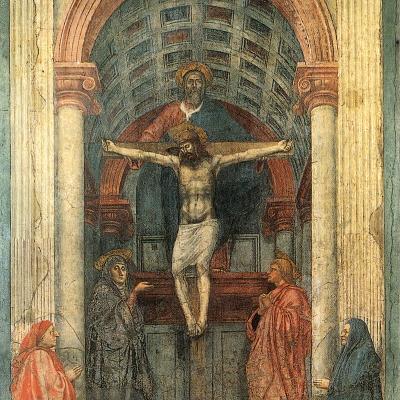
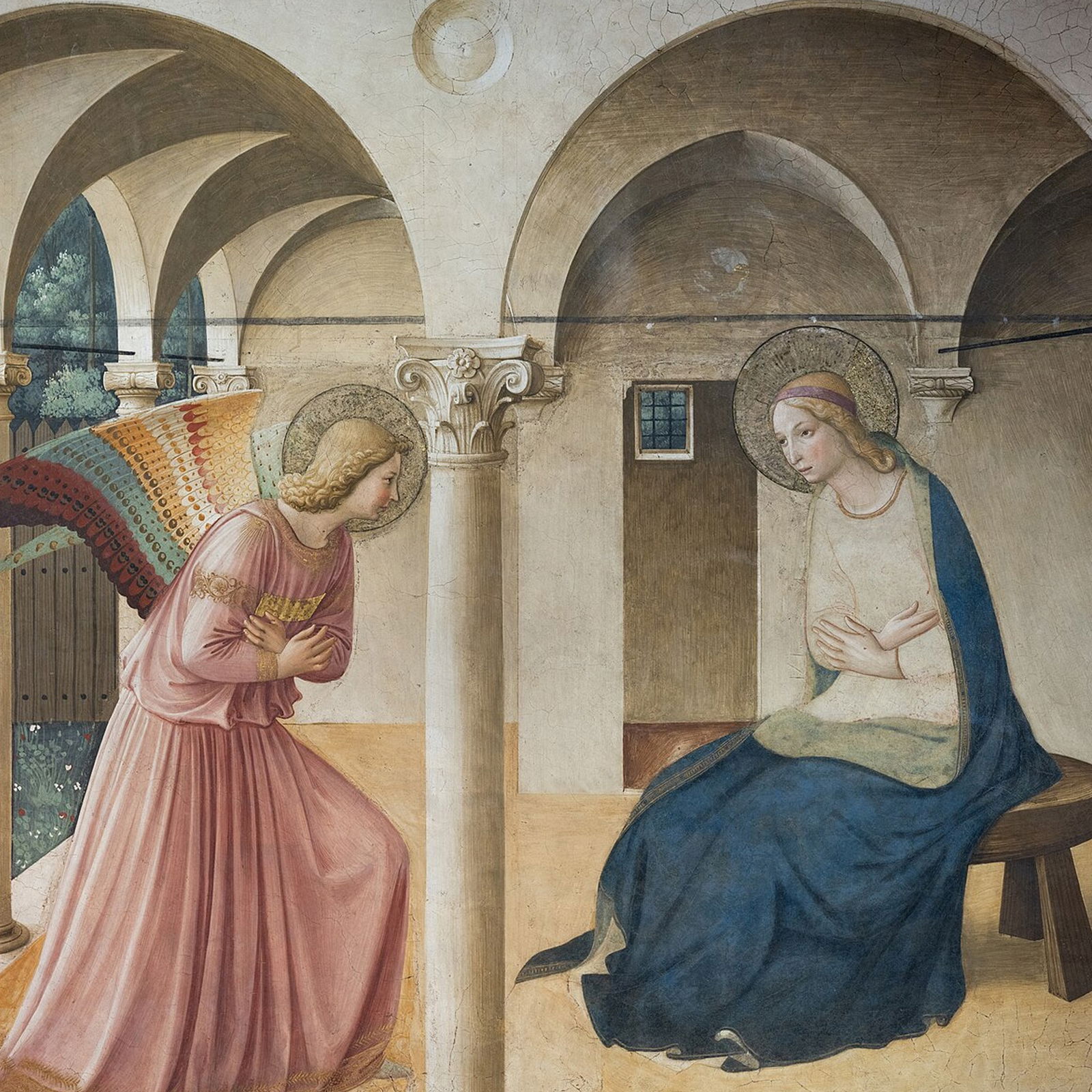
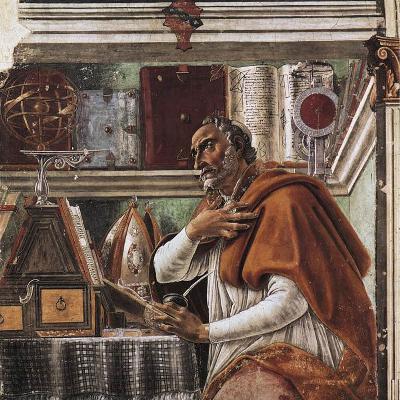
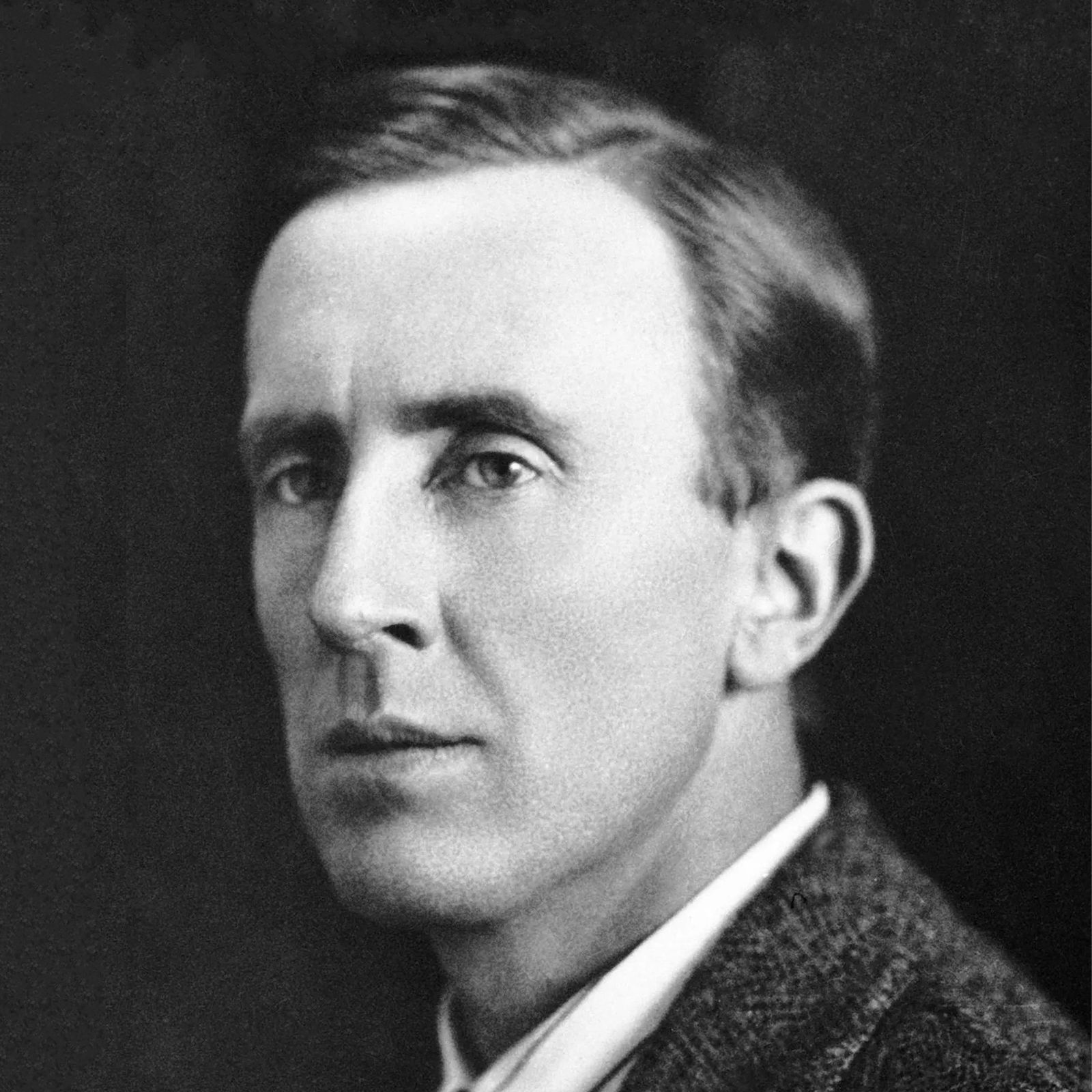
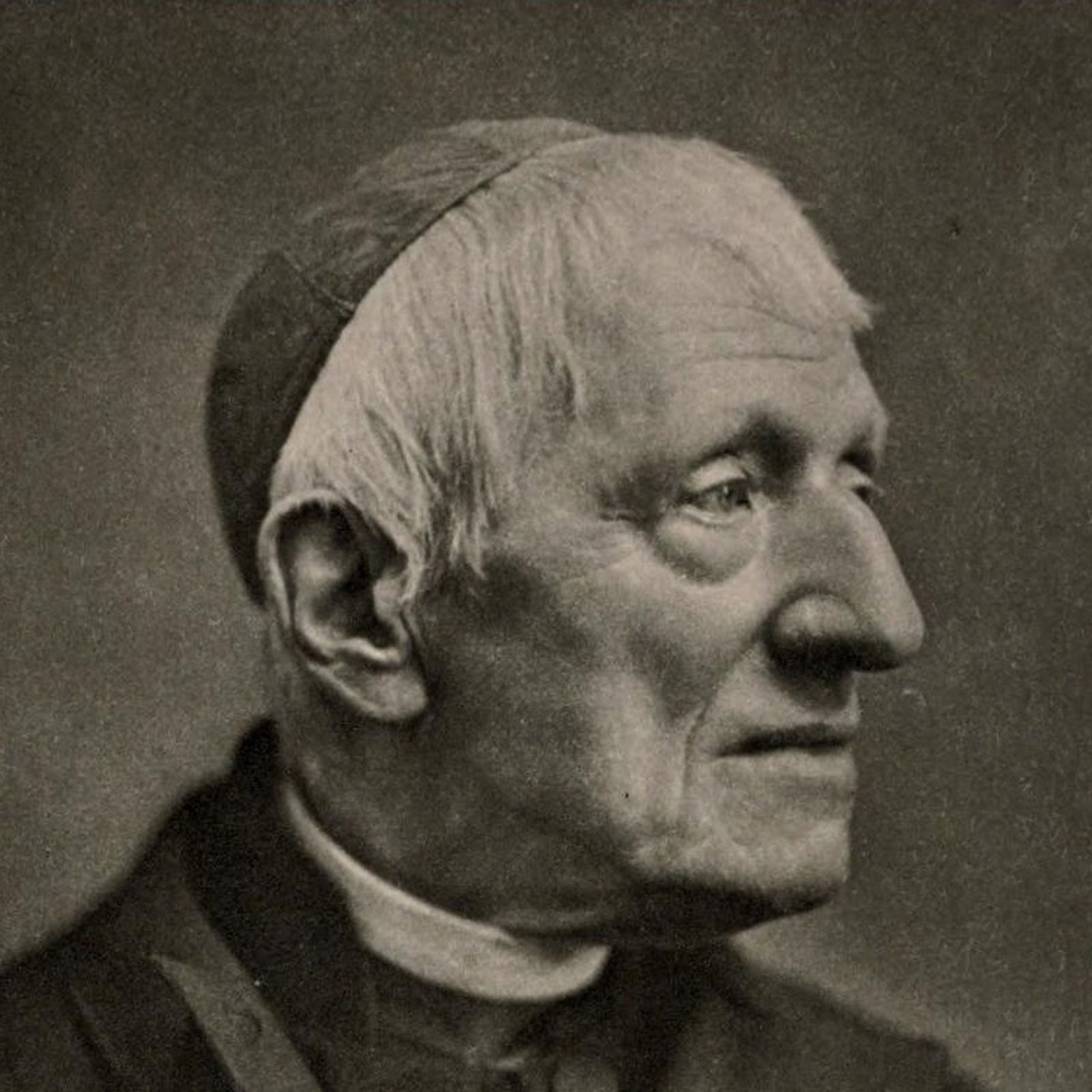
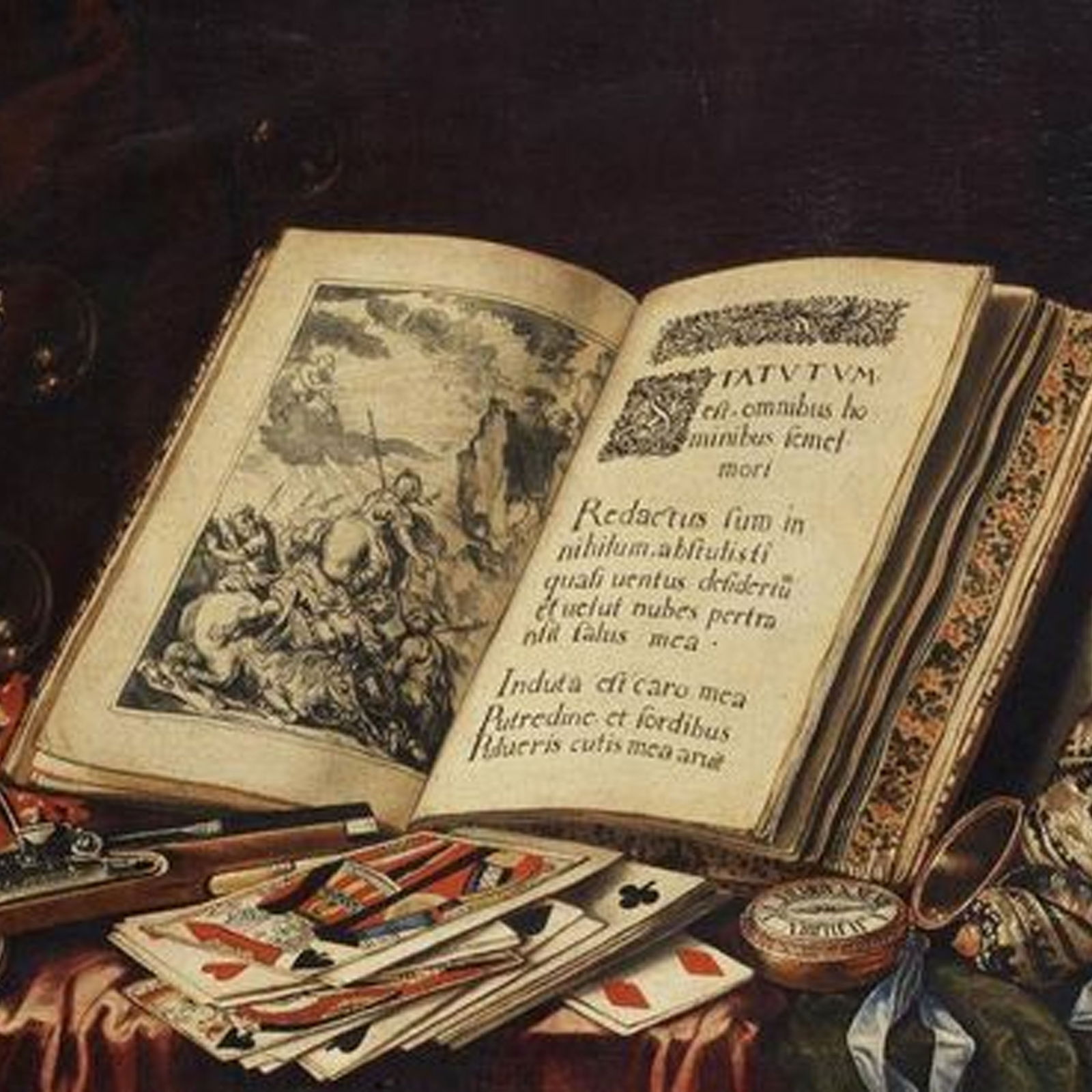
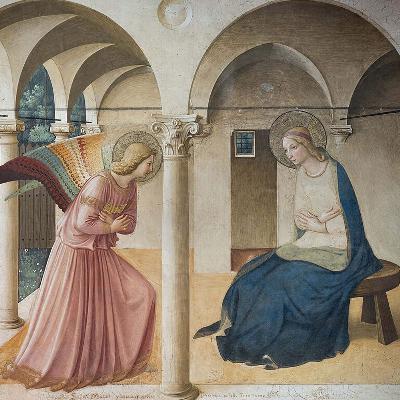
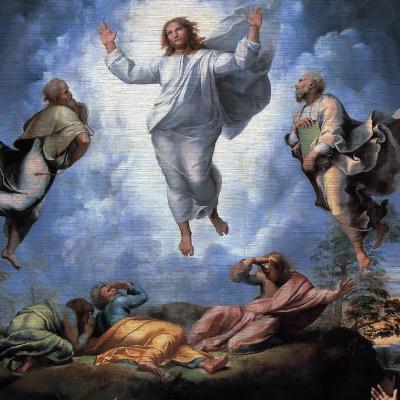
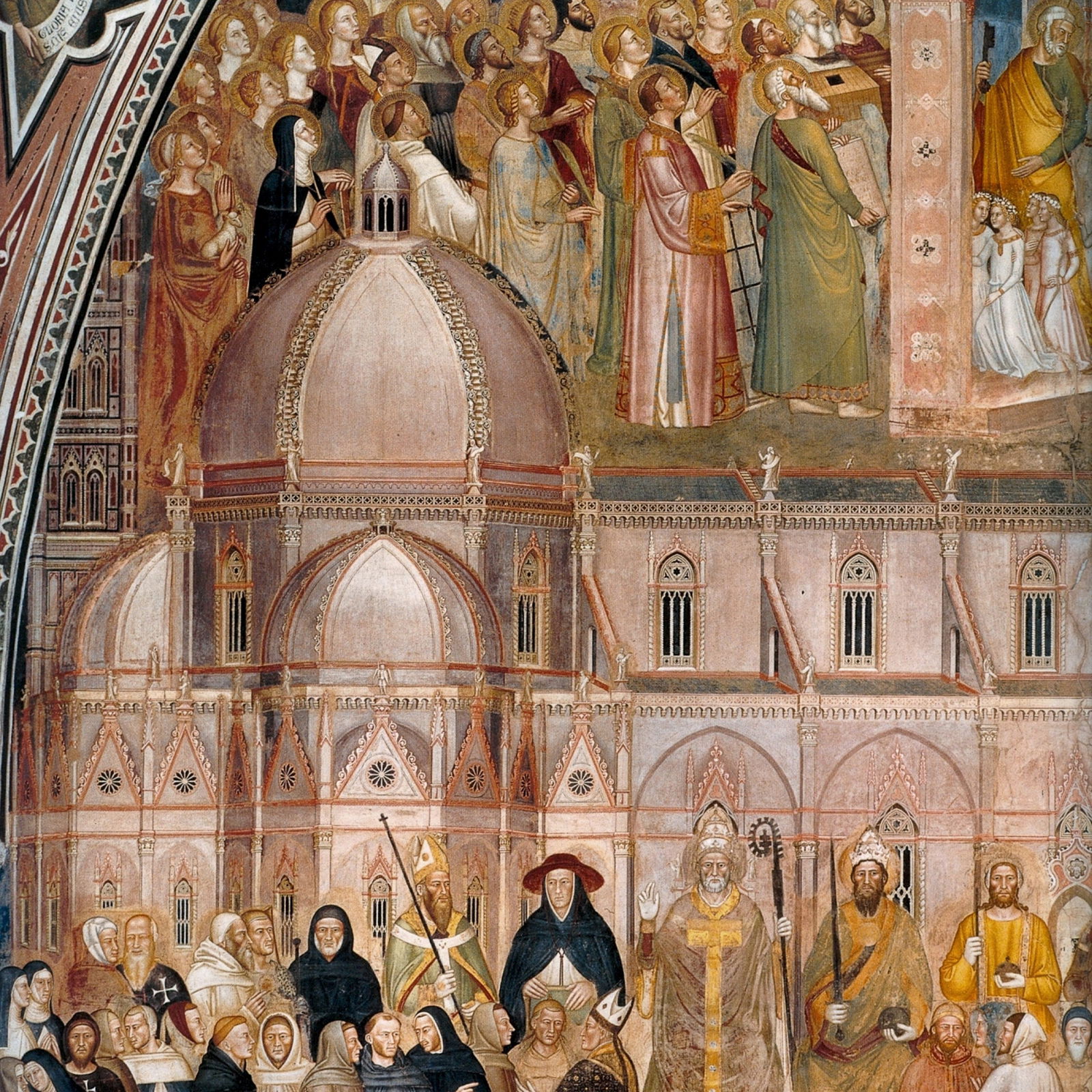
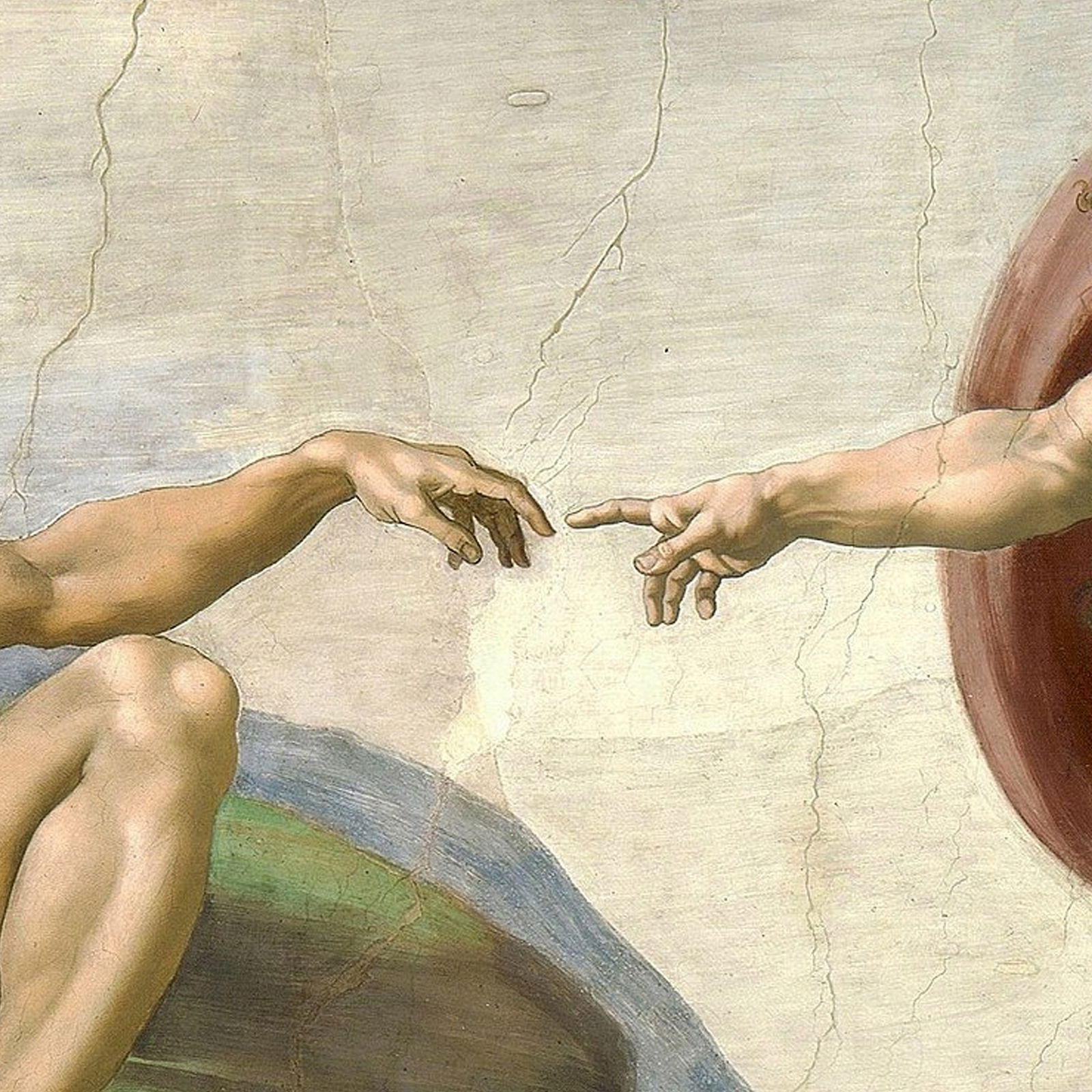
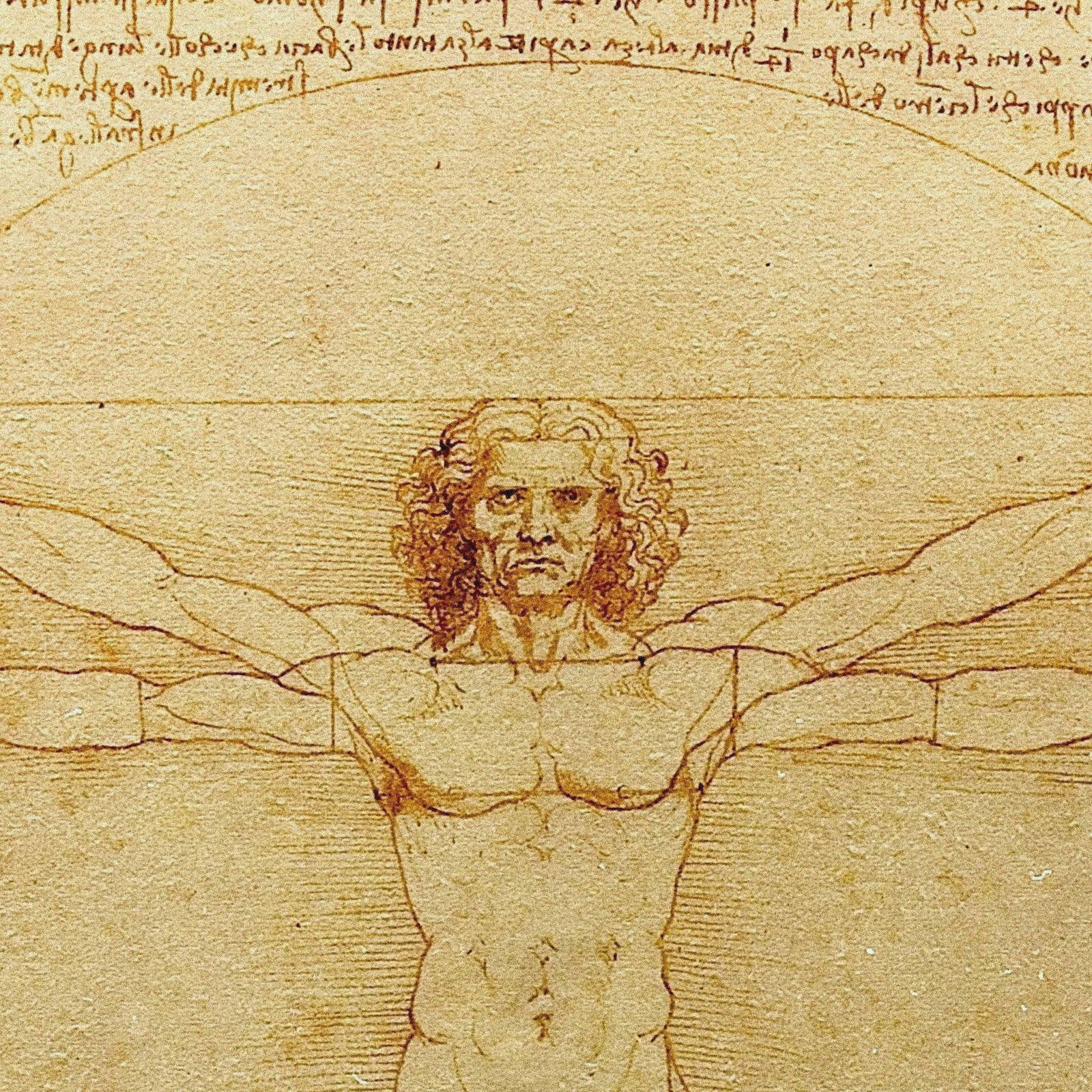
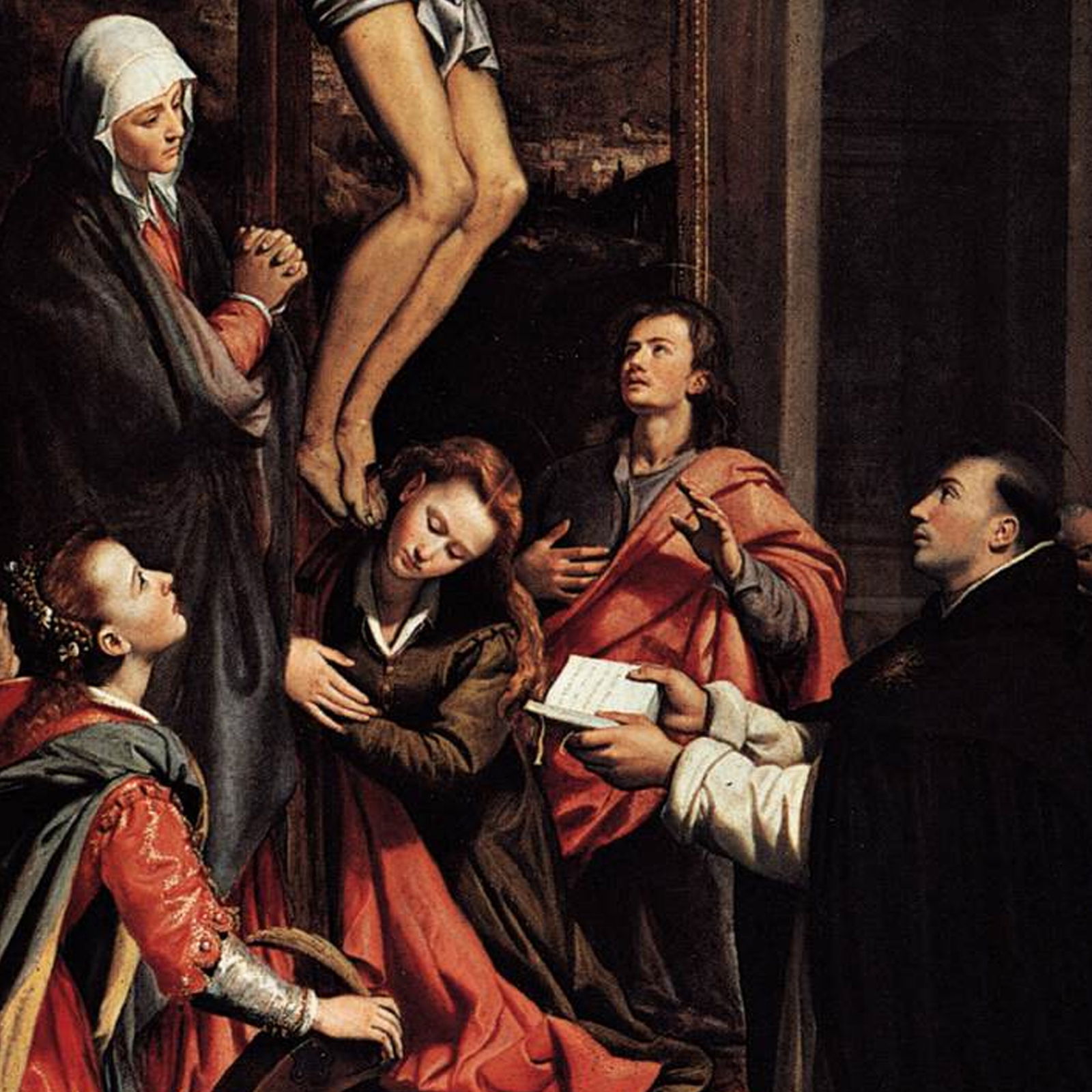
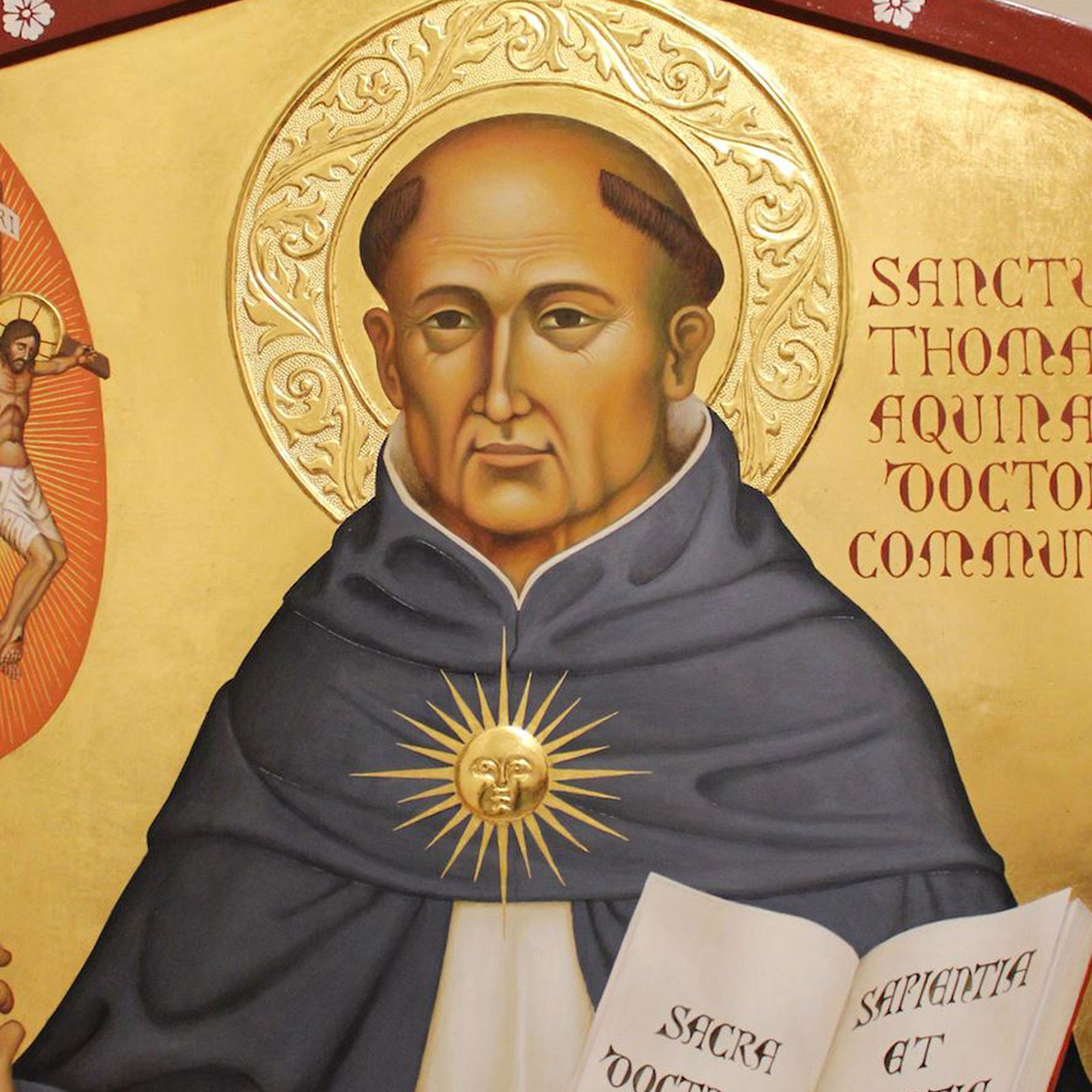
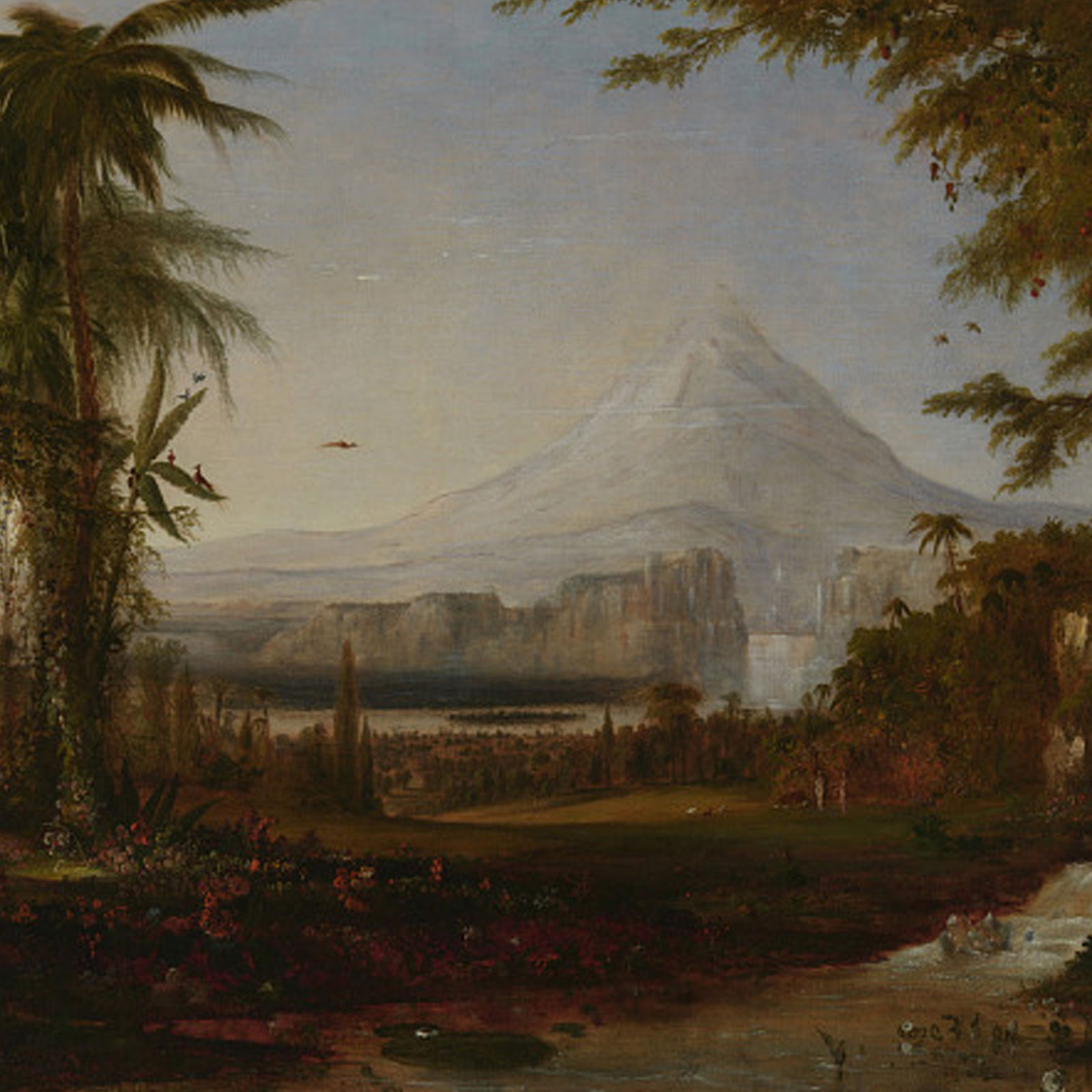
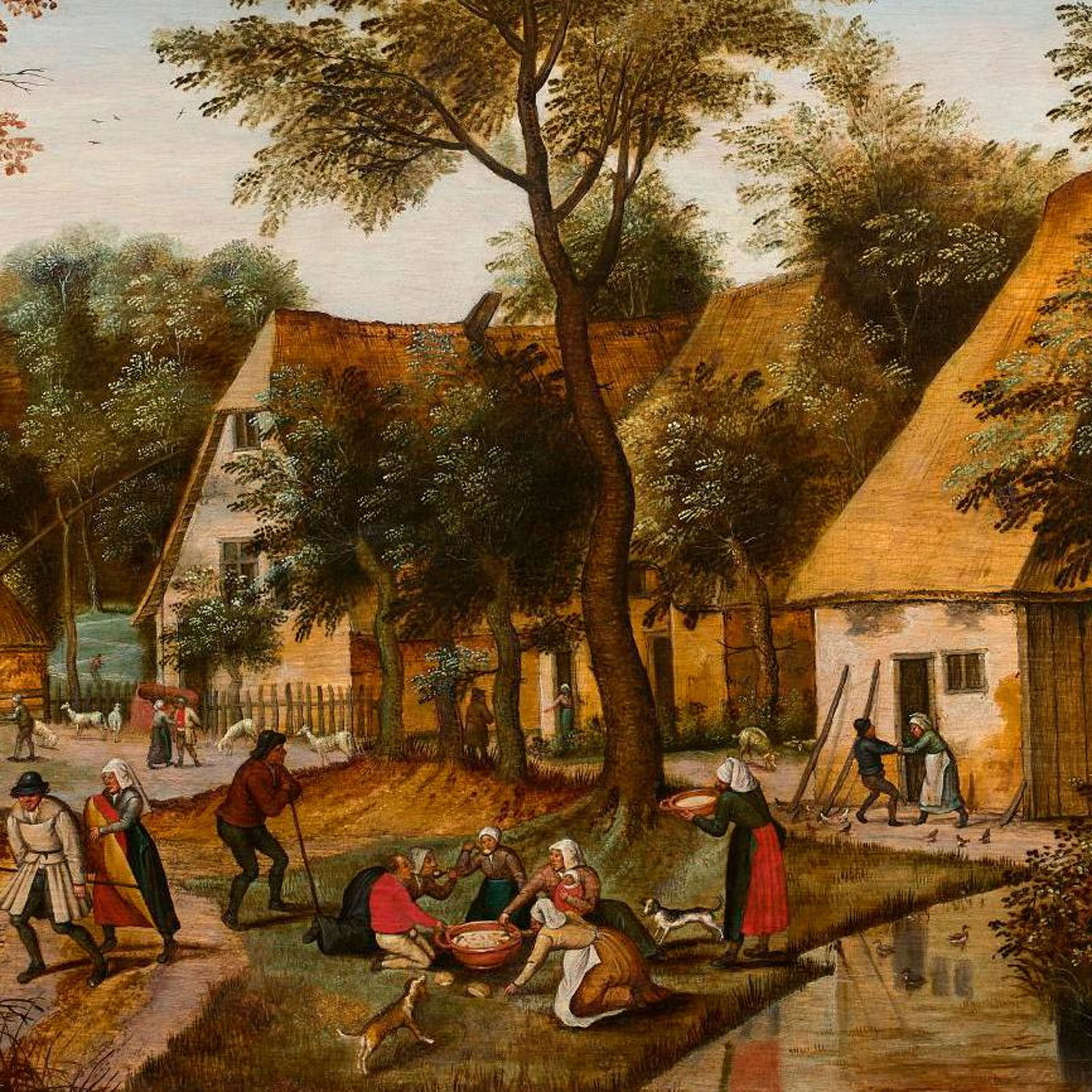
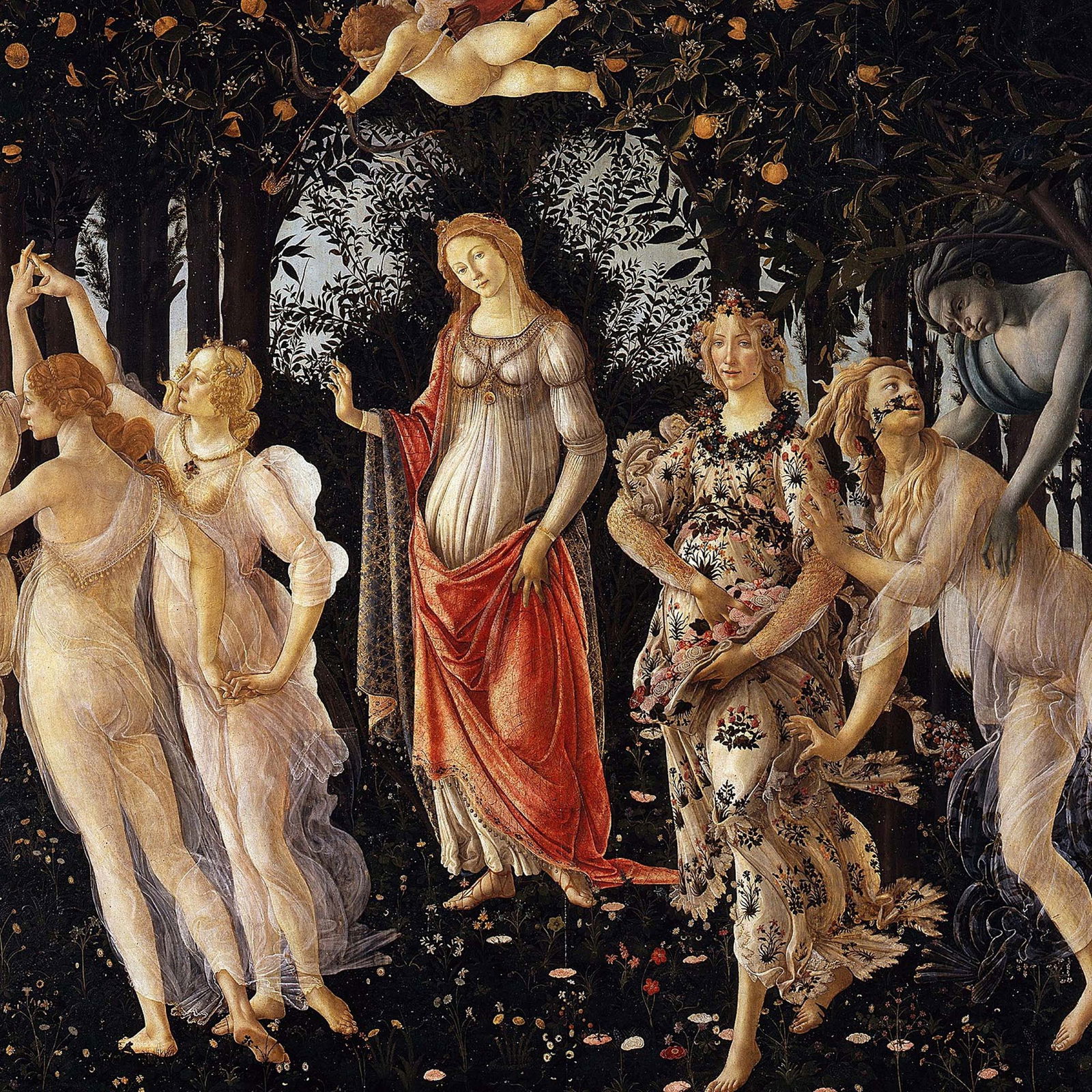
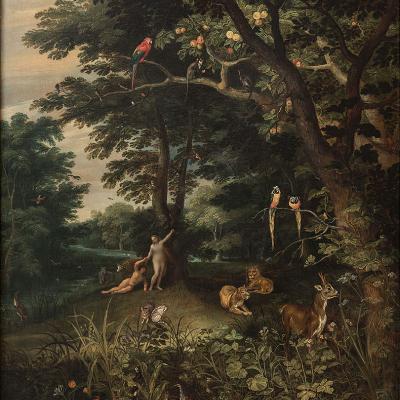
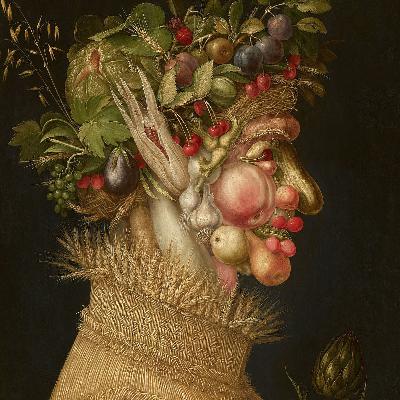
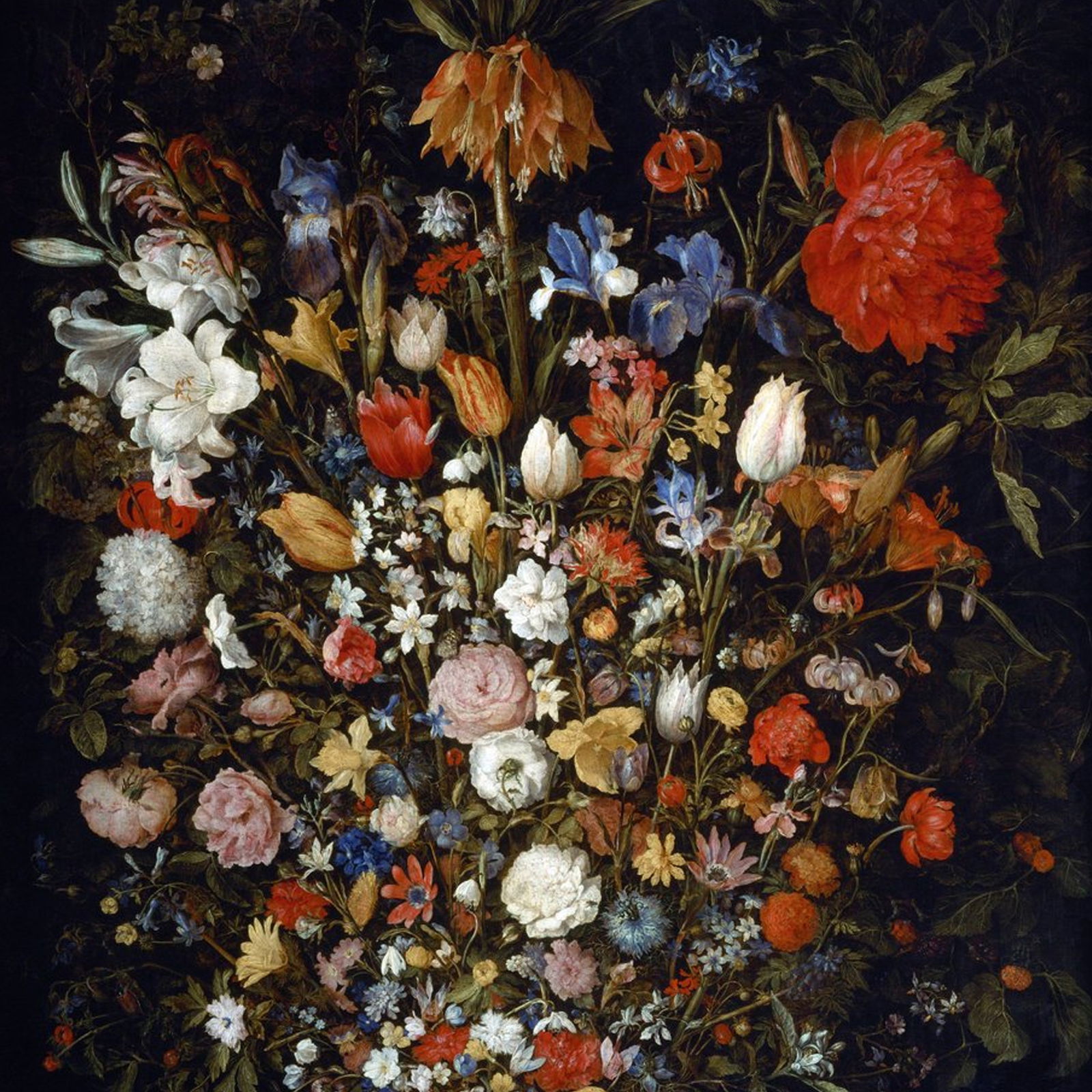



If a "good" acts against the good of a particular person it is not a common good because it is not common to every one. The common good must be truly good for every one. The only real Common Good is God for God alone is the cause of every existence and is the source and end of all that is truly good.
Is it good to be healthy through medicines derived from murdered children ie from aborted children? The answer is no. The pursuite of health can become evil if exalted above every thing else.
That Japanese fellow sounds a lot like de Chardin, no wonder you people find him appealing.
From Peter Kalkavage's "The Logic of Desire": "It seems odd that Hegel would devote so many pages to this boneheaded theory. Phrenology, however, plays a crucial role in Hegel's Science of experience. 39 It is the perfectly logical culmination of the instinct of observing reason, the drive to find spirit in a thing. As Hegel notes, "Observation has here reached the point where it openly declares what our concept of it was, namely, that the certainty of reason seeks its own self as an objective reality " [343]. In phrenology, in other words, observing reason becomes self-conscious. It sets out to find itself as pure mind in a blunt thing. Furthermore, the manifest absurdity of phrenology makes us aware of the not-so-evident absurdity in other, apparently scientific efforts (like those of physiognomy) to read the nature and workings of the human spirit in the human body (for example, in an individual's body-type or DNA). ... The phrenologist realizes that something as sublime as spir
where could I find or get access to his presentation or the hand outside mentioned?
This is spot on!!
Wow! Just great, thanks a lot. I had felt uneasy with neuroscience experiments but this helps clear the doubts. God bless